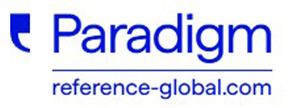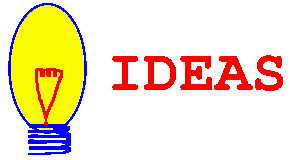STRATEGIC IGNORANCE: THE PARADIGM OF UNVEILING THE HIDDEN MOTIVES BEHIND MANAGERIAL BLIND SPOTS
DOI:
https://doi.org/10.2478/eoik-2025-0080Keywords:
Strategic ignorance, Wilfull managerial ignorance, Phenomenology, Decision makingAbstract
The prevailing idea is that decision makers tend to have access to in-
formation as much as possible and consider all information related to
a subject for their decisions. However, the evidence shows that some-
times managers deliberately ignore some information. It is a kind of
conscious ignorance that empowers managers to decide and act in the
way they think is right. This behavioural strategy is called “strategic
ignorance”. The aim of this study is to investigate the reasons why
strategic ignorance is used by managers in SMEs across various in-
dustries. To achieve this goal, we conducted in-depth interviews with
12 managers. The results turn our attention to a hidden reality behind
the logical behaviours of managers, and that is the human desire to use
“conscious ignorance”. This study confirms that “strategic ignorance”
is a deliberate attempt to prevent the organizations flow of knowledge
or information. This phenomenon is influenced by the systematic, en-
vironmental, and cognitive stimuli of ignorance and the indicators of
the information itself. Our research could help organizations develop
more effective strategies for preventing and mitigating strategic igno-
rance. By understanding the underlying motivations and mechanisms
of “Strategic ignorance”, organizations could implement interven-
tions to promote more informed decision-making practices.
References
Akbulut, O. Y. (2024). Assessing the Environmental Sustainability Performance of the Banking Sector: A
Novel Integrated Grey Multi-Criteria Decision-Making (MCDM) Approach. International Jour-
nal of Knowledge and Innovation Studies, 2(4), 239-258. https://doi.org/10.56578/ijkis020404
Al Dahdah, M., Falisse, J. B., & Lurton, G. (2021). Ignorance and global health. Revue danthropologie
des connaissances, 15, 4. https://doi.org/10.4000/rac.25605
Aldoory, L., & Van Dyke, M. A. (2006). The roles of perceived “shared” involvement and information over-
load in understanding how audiences make meaning of news about bioterrorism. Journalism &
Mass Communication Quarterly, 83(2), 346-361. https://doi.org/10.1177/107769900608300208
Alvesson, M. and Spicer, A. (2012). A Stupidity-Based Theory of Organizations, Journal of Manage-
ment Studies, 49(7), 1194–1220. https://doi.org/10.1111/j.1467-6486.2012.01072.x
Alvesson, M., Einola, K., & Schaefer, S. M. (2022). Dynamics of wilful ignorance in organizations. The
British Journal of Sociology, 73(4), 839-858. https://doi.org/10.1111/1468-4446.12963.
Artinger, F., Petersen, M., Gigerenzer, G., & Weibler, J. (2015). Heuristics as adaptive decision strategies in
management. Journal of Organizational Behavior, 36(S1), S33-S52. https://doi.org/10.1002/job.1950
Aumeboonsuke, V. (2025). Digital Convergence and Divergence in EU and ASEAN Economies. Eco-
nomics - Innovative and economics research journal, 13(1), 153–177. https://doi.org/10.2478/
eoik-2025-0002
Bogner WC, Bansal P (2007). Knowledge management as the basis of sustained high performance. Jour-
nal of Management Studies 44, 165–188. https://doi.org/10.1111/j.1467-6486.2007.00667.x
Bower, J. L., & Gilbert, C. G. (2018). How managers everyday decisions create or destroy your companys
strategy. Harvard Business Review, 96(3), 64-72. https://doi.org/10.1108/sd.2007.05623had.008
Colaizzi PF. (1978). Psychological research as the phenomenologist views it. In: Valle RS, King M, eds. Ex-
istential phenomenological alternatives for psychology. New York, Oxford University Press; 48–71.
Connelly CE, Zweig D, Webster J, Troukagos JP (2012). Knowledge hiding in organizations. Journal of
Organizational Behaviour, 24, 64–88. https://doi.org/10.1002/job.737
De Dreu, C. K., Nijstad, B. A., & Van Knippenberg, D. (2008). Motivated information processing in
group judgment and decision making. Personality and social psychology review, 12(1), 22-49.
https://doi.org/10.1177/1088868307304092
DeNicola D.R. (2018). Understanding ignorance. The surprising impact of what we don’t know. MIT
Press, Cambridge, MA. https://doi.org/10.1353/rvm.2018.0081
Dienes Z, Seth AK (2022). Conscious and unconscious mental states. Oxford Research Encyclopedia of
Psychology. https://doi.org/10.1093/acrefore/9780190236557.013.804
Elhassan, T. (2025). Green Technology Innovation, Green Financing, and Economic Growth in G7
Countries: Implications for Environmental Sustainability. Economics - Innovative and econom-
ics research journal, 13(1), 69–91. https://doi.org/10.2478/eoik-2025-0023
Essén A, Knudsen M, Alvesson M (2022). Explaining ignoring – working with information that nobody
uses. Organ Stud, 43, 725–747. https://doi.org/10.1177/0170840621998720
Ganz, S. C. (2018). Ignorant decision making and educated inertia: Some political pathologies of orga-
nizational learning. Organization Science, 29(1), 39-57. https://doi.org/10.1287/orsc.2017.1164
Grossman, Z. (2014). Strategic ignorance and the robustness of social preferences. Management Sci-
ence, 60(11), 2659-2665. https://doi.org/10.1287/mnsc.2014.1989
Guba, E. G., & Lincoln, Y. S. (1994). Competing paradigms in qualitative research. Handbook of qual-
itative research, 2(163-194), 105.
Gul, R. & Tufail, F. (2025). Multi-Attribute Green Supplier Decision-Making Using Picture Fuzzy
Rough Schweizer-Sklar Aggregation Operators. International Journal of Knowledge and Inno-
vation Studies, 3(2), 60-73. https://doi.org/10.56578/ijkis030201
Abedin B. et al. / Economics - Innovative and Economics Research Journal, doi: 10.2478/eoik-2025-0080
Hartog, D. N. D., & Belschak, F. D. (2012). Work engagement and Machiavellianism in the ethical leader-
ship process. Journal of Business Ethics, 107(1), 35-47. https://doi.org/10.1007/s10551-012-1296-4
Hertwig, R., & Engel, C. (Eds.). (2021). Deliberate ignorance: Choosing not to know (Vol. 29). MIT
Press. https://doi.org/10.1177/1745691616635594
Jalonen, H. (2023). Ignorance in organisations–a systematic literature review. Management Review
Quarterly, 1-42. https://doi.org/ 10.1007/s11301-023-00321-z
Jarke-Neuert, J., & Lohse, J. (2022). Im in a hurry, I dont want to know! Strategic ignorance under time
pressure. Journal of Experimental Psychology: General. https://doi.org/ 10.1037/xge0001130
Kish-Gephart, J. J., Detert, J. R., Treviño, L. K., & Edmondson, A. C. (2009). Silenced by fear: The
nature, sources, and consequences of fear at work. Research in Organizational Behavior, 29,
-193. https://doi.org/10.1016/j.riob.2009.07.002
Labafi, S., Issac, A. C., & Sheidaee, S. (2022). Is hiding something you know as important as knowing
it? Understanding knowledge hiding in IT-enabled services of Iran. Knowledge Management
Research & Practice, 20(3), 461-473. https://doi.org/ 10.1080/14778238.2021.1992314
Lipshitz, R., & Strauss, O. (1997). Coping with uncertainty: A naturalistic decision-making analysis. Or-
ganizational behavior and human decision processes, 69(2), 149-163. https://doi.org/10.1006/
obhd.1997.2679
March JG, Simon HA (1993) Organization. 2nd edition. Oxford: Wiley-Blackwell.
Masoumi, G., & Dehghani, A. (2017). Letter to Editor: Challenges of Risk Communication in Plasco
Building Collapse. Health in Emergencies and Disasters Quarterly, 2(3), 103-106. https://doi.
org/10.32592/jorar.2022.14.3.4
McGoey L (2012) The logic of strategic ignorance. British Journal of Sociology 63:553–576. https://doi.
org/10.1111/j.1468-4446.2012.01424.x
McGoey L (2014) An introduction to the sociology of ignorance. Routledge, London.
Moore WE, Tumin MM (1949) Some social functions of ignorance. American Sociology Review
:787–795. https://doi.org/10.2307/2086681
Moraliyska, M. (2023). Measuring the Justness of the European Green Transition. Collection of papers
new economy, 1, 30-41. https://doi.org/10.61432/CPNE0101030m
Murata, A., Nakamura, T., & Karwowski, W. (2015). Influence of cognitive biases in distorting de-
cision making and leading to critical unfavorable incidents. Safety, 1(1), 44-58. https://doi.
org/10.22541/au.172685269.91673050/v1
Cole, M., & Avison, D. (2007). The potential of hermeneutics in information systems research. European
Journal of Information Systems, 16(6), 820-833. https://doi.org/10.1057/palgrave.ejis.3000725
Natanson, M. (1973). Phenomenology and the social sciences, 1. Evanston: Northwestern University Press.
Natow RS (2020). The use of triangulation in qualitative studies employing elite interviews. Qualitative
Research 20, 160–173. https://doi.org/10.1177/1468794119830077
Nordström, J., Thunström, L., vant Veld, K., Shogren, J. F., & Ehmke, M. (2023). Strategic ignorance of
health risk: its causes and policy consequences. Behavioural Public Policy, 7(1), 83-114. https://
doi.org/10.1017/bpp.2019.52
Palinkas, L. A., Horwitz, S. M., Green, C. A., Wisdom, J. P., Duan, N., & Hoagwood, K. (2015). Pur-
poseful sampling for qualitative data collection and analysis in mixed method implementation
research. Administration and policy in mental health and mental health services research, 42,
-544. https://doi.org/10.1007/s10488-013-0528-y
Paul, K. T., Vanderslott, S., & Gross, M. (2022). Institutionalised ignorance in policy and regulation.
Science as Culture, 31(4), 419-432. https://doi.org/10.1080/09505431.2022.2143343
Pedron, C. D., & Saccol, A. Z. (2009). What lies behind the Concept of Customer relationship manage-
ment? Discussing the essence of CRM through a phenomenological approach. BAR-Brazilian
Administration Review, 6(1), 34-49. https://doi.org/10.1590/S1807-76922009000100003
Strategic Ignorance: The Paradigm of Unveiling the Hidden Motives Behind Managerial Blind Spots
Petty, R. E., Briñol, P., & DeMarree, K. G. (2007). The Meta–Cognitive Model (MCM) of attitudes:
Implications for attitude measurement, change, and strength. Social cognition, 25(5), 657-686.
https://doi.org/10.1521/soco.2007.25.5.657
Pinto, M. F. (2019). Scientific ignorance: Probing the Limits of Scientific Research and Knowledge.
Theoria: An International Journal for Theory, History and Foundations of Science, 34(2), 195-
https://doi.org/10.1387/theoria.19329
Proctor RN, Schiebinger L (eds) (2008) Agnotology: the making and unmaking of ignorance. Stanford
University Press, Stanford, CA.
Riaz, M. & Farid, H. M. A. (2023). Enhancing Green Supply Chain Efficiency Through Linear Dio-
phantine Fuzzy Soft-Max Aggregation Operators. Journal of Industrial Intelligence, 1(1), 8-29.
https://doi.org/10.56578/jii010102
Roberts J (2013) Organizational ignorance: towards a managerial perspective on the unknown. Manage-
ment Learning, 44, 215–236. https://doi.org/10.1177/1350507612443208
Roberts, J. (2015). Organizational ignorance. In M. Gross & L. McGoey (Eds.), Handbook of ignorance
studies, 361–370. Routledge. https://doi.org/10.4324/9781003100607
Saunders, B., Sim, J., Kingstone, T., Baker, S., Waterfield, J., Bartlam, B., ... & Jinks, C. (2018). Satu-
ration in qualitative research: exploring its conceptualization and operationalization. Quality &
quantity, 52, 1893-1907. https://doi.org/10.1007/s11135-017-0574-8
Schaefer, Stephan (2019). Wilful managerial ignorance and symbolic work: A socio-phenomeno-
logical study of managing creativity. Organization Studies, 40, 1387–1407. https://doi.
org/10.1177/0170840618772600
Somin, I. (2006). Knowledge about ignorance: New directions in the study of political information.
Critical Review, 18(1-3), 255-278. https://doi.org/10.1080/08913810608443660
Sullivan-Clarke, A. (2024). Strategic ignorance, is it appropriate for indigenous resistance? Critical
Review of International Social and Political Philosophy, 1-16. https://doi.org/10.1080/136982
2024.2305015
Teo T (2022) Culture-supremacy: Expressions, sources, and resistance to a psychology of motivat-
ed ignorance. Research in the Social Scientific Study of Religion 32:323–340. https://doi.
org/10.1163/9789004505315_019
Teo, C. J. H., Burns, S. F., & Kawabata, M. (2023). Developing Nutrition Knowledge and Attitude
Measures for Athletes with the Knowledge–Attitude–Behavior Model. Research Quarterly for
Exercise and Sport, 94(1), 110-117. https://doi.org/10.1080/02701367.2021.1942771
Trimmer, P. C., McElreath, R., Auster, S., Brown, G. D., Dana, J., Gigerenzer, G., ... & Szech, N. (2021).
The zoo of models of deliberate ignorance, The MIT Press, 155-184. https://doi.org/10.7551/
mitpress/13757.003.0015
Ungar, S. (2008). Ignorance as an under-identified social problem. British Journal of Sociology, 59,
–326. https://doi.org/10.1111/j.1468-4446.2008.00195.x
Van Knippenberg, D., Dahlander, L., Haas, M. R., & George, G. (2015). Information, attention, and decision
making. Academy of Management journal, 58(3), 649-657. https://doi.org/10.5465/amj.2015.4003
Vlasenko, T. (2023). Dimensions of The Analysis of the Organizational Culture of Multinational Compa-
nies. Collection of papers new economy, 1, 110-125. https://doi.org/10.61432/CPNE0101110v
Vu MC, Burton N (2024) Beyond the inclusion–exclusion binary: Right mindfulness and its impli-
cations for perceived inclusion and exclusion in the workplace. Journal of Business Ethics
:147–165. https://doi.org/10.1007/s10551-023-05457-2
Vu, L., Soraperra, I., Leib, M., van der Weele, J., & Shalvi, S. (2023). Ignorance by choice: A meta-ana-
lytic review of the underlying motives of willful ignorance and its consequences. Psychological
Bulletin, 149(9-10), 611. https://doi.org/10.1037/bul0000398
Downloads
Published
How to Cite
Issue
Section
License
Copyright (c) 2025 ECONOMICS - INNOVATIVE AND ECONOMICS RESEARCH JOURNAL

This work is licensed under a Creative Commons Attribution-NonCommercial-NoDerivatives 4.0 International License.























